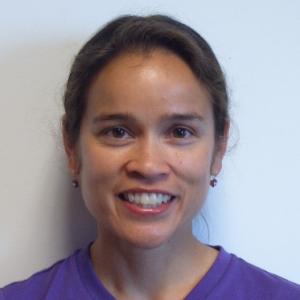Engaging students’ preconceptions about groundwater facilitates their learning about aquifers
| Event Date: | November 4, 2021 |
|---|---|
| Speaker: | Leilani Arthurs |
| Speaker Affiliation: | University of Colorado Boulder |
| Time: | 3:30 - 4:30 PM |
| Location: | Online; ARMS B071 |
| Priority: | No |
| School or Program: | Engineering Education |
| College Calendar: | Show |
Teaching and learning about groundwater are challenging, and misunderstandings among non-experts abound. Meyer (1987) and Bar (1989) opine that the misunderstandings or preconceptions students bring to the classroom can be used as instructional tools to facilitate learning about groundwater, but they are uncertain about how to do this. Linn’s (2008) knowledge integration perspective of conceptual change emphasizes focusing on students’ existing and evolving conceptions through: (i) personally relevant problems; (ii) opportunities to make individual student thinking visible; (iii) opportunities for students to learn from each other by sharing, discussing, and evaluating each other’s ideas; and (iv) opportunities for students to reflect on and monitor their performance. The knowledge integration perspective of conceptual change considers the cognitive, temporal, and social dimensions of learning. We use a quasi-experimental research design to compare how two different instructional sequences about groundwater residence and aquifers impact these three dimensions of student learning. Both instructional sequences are designed to use active learning techniques; however, one purposefully solicits and engages students’ preconceptions (test group), and the other does not (control group). In this presentation, we will discuss findings from student-sourced data in the form of concept sketches and post-instruction surveys. Concept sketches were scored using a rubric, and normalized gains were calculated. Responses to open-ended questions in post-instruction surveys were subjected to textual content analyses. We found the test group had significantly larger learning gains than the control group, suggesting that active learning techniques lead to even better learning gains when students’ preconceptions are purposefully and explicitly incorporated into their in-class activities than when they are avoided. We also found that the preconceptions technique for instruction had no statistically significant differences between Caucasian and non-Caucasian students as well as male and female students, suggesting that the preconceptions technique is accessible and beneficial to students in this broad range of demographics. We did not investigate possible correlations with other demographics.
Speaker Bio
Leilani Arthurs holds a BA in Peace & Conflict Studies from University of California at Berkeley, a BS in Geology from the University of Hawai`i at Hilo, and a PhD in Civil Engineering & Geological Sciences from the University of Notre Dame. She began her career in discipline-based education research (DBER) as a postdoc in the Science Education Initiative with Nobel Laureate Carl Wieman at the University of Colorado at Boulder. She previously held faculty positions at the University of Georgia Southern and the University of Nebraska-Lincoln. Her research interests include: identifying conceptual challenges to learning Earth processes; increasing novice proficiency with scientific, analytical, and critical thinking skills; and applying learning sciences and communication research to the design of instructional materials, pedagogical strategies, and STEM faculty professional development programs.

